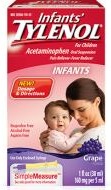The McNeil Consumer Healthcare plant in Pennsylvania where a laissez-faire attitude about quality led Johnson & Johnson ($JNJ) into a regulatory quagmire has now led the drugmaker to plead guilty to a federal misdemeanor charge and fork over $25 million.
 J&J will pay a $20 million fine and forfeit $5 million after it agreed to plea to a charge that it delivered for introduction into interstate commerce drugs that were deemed adulterated.
J&J will pay a $20 million fine and forfeit $5 million after it agreed to plea to a charge that it delivered for introduction into interstate commerce drugs that were deemed adulterated.
The plea agreement announced by Justice Department and FDA officials Tuesday stemmed from a complaint that McNeil's plant in Fort Washington, PA, received in 2009, that there were "black specks in the liquid on the bottom of the bottle" of Infants' Tylenol. But instead of initiating a Corrective and Preventive Action (CAPA) plan, officials there did essentially nothing. In fact, the FDA would determine that the plant had received about 30 similar complaints in 2009 and 2010 but failed to take required actions, at least until FDA inspectors showed up in 2010.
An investigation found that those specks were particles of nickel and chromium coming off of machinery. Authorities said no consumers were harmed as a result, but J&J voluntarily recalled and destroyed tens of millions of consumer products it had shipped worldwide. The plant issues resulted in a court-ordered permanent injunction.
"The law requires that drugs be produced under the most rigorous of quality standards," First Assistant U.S. Attorney Louis Lappen said in a statement. "When companies fail to exercise the vigilance that the law demands, they will held be accountable. Drug companies should be aware that failing to adhere to good manufacturing practices subjects them to penalties and prosecution."
On Tuesday, J&J accepted "responsibility for the inadequate filing of required documents during the manufacturing process" and said it will pay a settlement of $25 million. But it also said that the voluntary recalls "were not undertaken because of health or safety risks to consumers."
McNeil spokesperson Carol Goodrich said in an emailed statement: "This plea agreement fully and finally resolves the federal government's investigation, and closes a chapter on actions that led the company to review and significantly improve its procedures. McNeil has been implementing enhanced quality and oversight standards across its entire business to ensure we are best able to meet our commitment to consumers, patients and doctors who rely on our products."
Having to strip retailers' shelves bare of its most popular OTC meds reportedly cost the company at least $1.6 billion in lost sales and expenses and cost some of its top execs their jobs. The company closed the plant and spent $100 million to completely overhaul the facility and its production lines, although the plant has yet to reopen. Goodrich told FiercePharmaManufacturing that McNeil has "completed the steps required for third party certification" and that its expert has submitted written certification to the FDA. The company is now awaiting an FDA reinspection so that the plant can return to production.
In 2012, CEO Alex Gorsky hired Sandra Peterson from Bayer to deal with the issues created by the deeply troubled plant. Peterson has been able to arrange for enough production to meet retailer's demand for J&J OTC products, resulting in a surge in sales last year.
- here's DOJ the announcement
- here's McNeil's statement
Related Articles:
J&J's new fixer turns consumer division back into a profit center
J&J hikes earnings forecast on pharma's superhero sales flight
J&J's Gorsky sees McNeil U.S. issues with FDA coming to a close
J&J picks Bayer AG exec to solve its consumer product mess
Gorsky starts the marathon task of rehabbing J&J